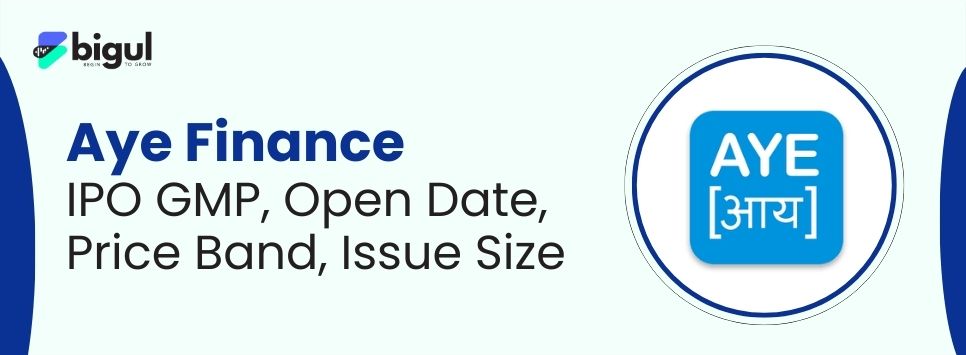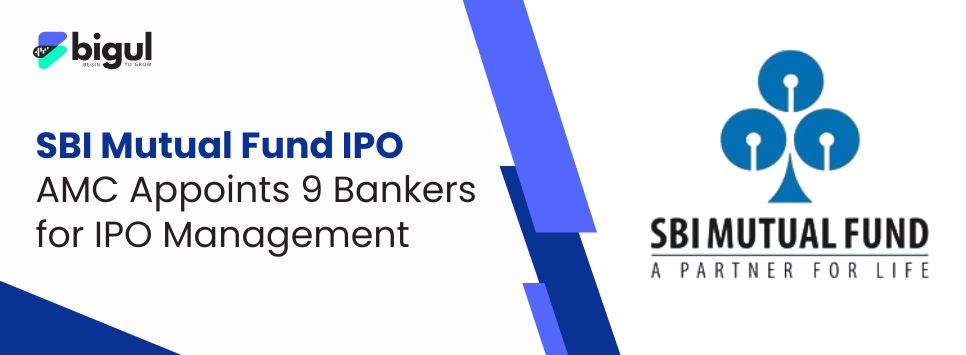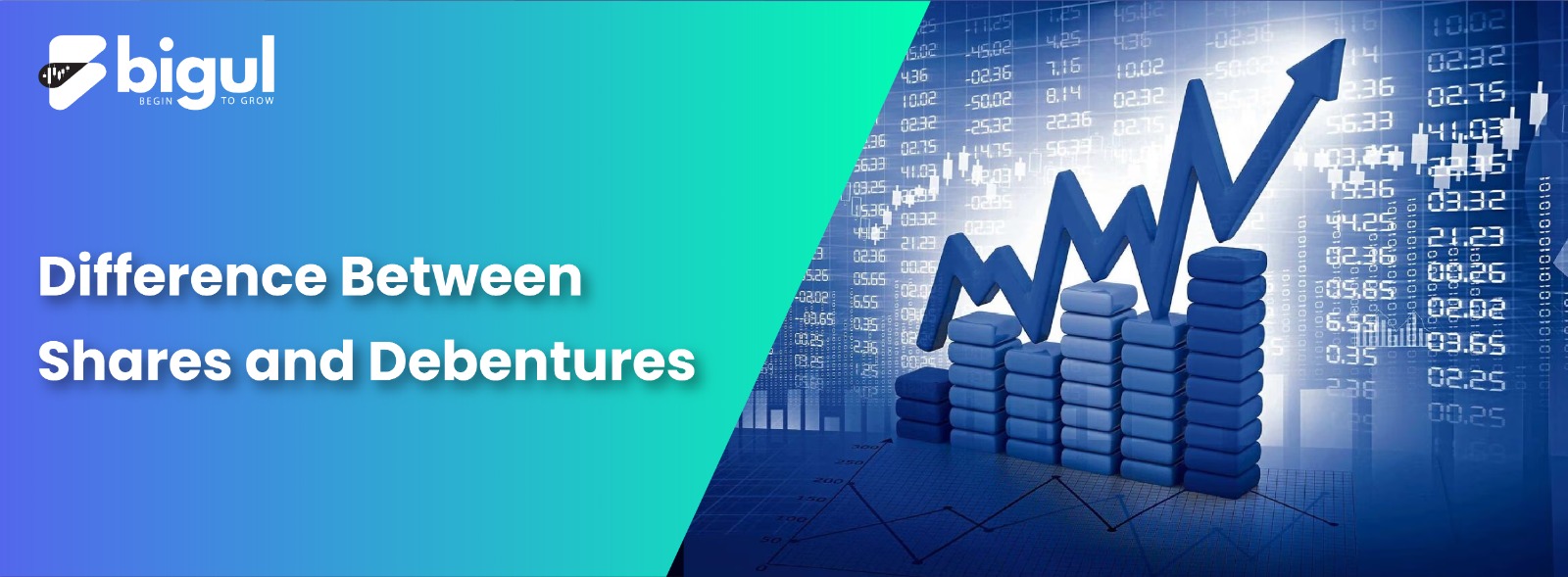In the world of finance, where businesses seek capital to fuel their growth and individuals aim to invest wisely, two fundamental instruments play a pivotal role: shares and debentures.
These financial tools are the cornerstones of corporate financing, each offering distinct advantages and carrying unique risks. Shares provide ownership and voting rights in a company, potentially delivering high returns but at the cost of heightened risk.
In contrast, debentures represent a form of debt, ensuring predictable fixed returns with lower risk levels. To make smart investments, you must understand these differences.
So, let’s briefly understand the differences.
What are Shares?
A share, defined under Section 2(84) of the Companies Act, 2013, represents a fractional ownership unit in a company. These small-denomination units collectively constitute the company’s capital.
For instance, if a company’s capital is 20 lakhs, divided into 2 lakhs units of ₹10 each, each of these 2 lakhs units is referred to as a share.
Shares serve as evidence of a shareholder’s equity claim in the company and are integral to raising capital. They are easily transferable and tradeable on stock exchanges, their value subject to market dynamics, resulting in continuous fluctuations.
Shares can be categorized as:
- Common Shares
- Preference Shares
Let’s delve into the details of each:
1. Common Shares (Common Stock)
Common shares provide ownership in a company, entitling shareholders to vote on key corporate matters during shareholder meetings.
Dividends for common shareholders are variable and depend on the company’s earnings and board decisions. These shareholders have the potential for significant returns through capital appreciation and dividends, but this comes with a higher risk level.
In a liquidation scenario, common shareholders are generally at the end of the line to receive proceeds, behind preferred shareholders and bondholders.
2. Preferred Shares (Preferred Stock)
Preferred Shares (Preferred Stock) grant investors ownership in a company while prioritizing fixed dividends over voting rights. Unlike common shareholders, preferred shareholders typically have limited or no say in corporate decisions.
Their primary attraction lies in the predictability of fixed dividend payments, often at higher rates than those offered to common shareholders. This arrangement provides a stable income stream and shields investors from the fluctuations tied to the company’s performance.
In case of liquidation, preferred shareholders hold a superior position to common shareholders, ensuring they receive their dividends before common shareholders get any proceeds.
Advantages of Holding Shares
Holding shares in a company can offer several advantages to investors. This makes them a popular choice for those looking to grow their wealth and participate in the success of businesses.
Here are some key advantages of holding shares:
1. Ownership and Voting Rights
Shareholders hold a vital advantage in the form of ownership and voting rights. When individuals hold shares in a company, they become partial owners of that business. This entitles them to partake in crucial decisions.
This includes voting on matters such as electing the board of directors and influencing significant corporate policies.
As a result, shareholders play an active role in shaping the company’s direction and governance.
2. Potential for Capital Appreciation
Capital appreciation allows investors to profit from share price increases. Share prices climb as a firm grows, becomes profitable, or reaches major milestones.
Increased demand can boost share prices. Investors can profit by selling their shares at a greater price. This capital appreciation makes investment in shares appealing for long-term wealth growth.
3. Dividend Income
Shareholders enjoy the advantage of receiving dividends, which are portions of a company’s profits distributed to them. This dividend income serves as a reliable source of earnings for investors.
It’s particularly beneficial for income-oriented investors, as they can count on periodic dividend payments. This provides financial stability and potentially enhances their overall investment returns.
4. Liquidity
Shares offer a distinct advantage in terms of liquidity. This means that shareholders can readily convert their holdings into cash whenever needed.
Unlike certain investments that may involve extended timeframes or complex processes for selling, shares can be easily traded on stock exchanges. This provides investors with flexibility and immediate access to their invested capital.
This liquidity feature empowers investors to react to market dynamics and align their investments with their financial goals swiftly.
5. Diversification
Diversification is a crucial advantage associated with share investments. It involves the deliberate strategy of spreading your investments across different companies and industries. The rationale is straightforward: it mitigates risk.
When you diversify, you reduce your vulnerability to a downturn in any one sector. By having holdings in various industries, you can potentially offset losses with gains from other areas.
Diversification is a wise approach to managing investment risk, aiming to create a more balanced and resilient portfolio in the face of market volatility.
Disadvantages of Holding Shares
- Market Volatility: Share prices can fluctuate significantly, leading to potential losses.
- Lack of Fixed Income: Shareholders do not receive fixed interest, making income uncertain.
- Risk of Capital Loss: Shares may decrease in value, resulting in a reduced investment value.
- Limited Control: Shareholders have limited influence over company decisions unless they own a significant stake.
- Dilution: New share issuances can dilute the ownership and voting rights of existing shareholders.
- Market and Economic Factors: Share values can be affected by external economic and market conditions.
- Dividend Uncertainty: Companies may reduce or eliminate dividends in challenging times.
What are Debentures?
Debentures are financial instruments used by companies to raise capital. They represent a form of debt, where the issuing company borrows funds from investors and promises to repay the principal amount along with periodic interest payments.
Unlike shares, debenture holders do not have ownership rights or voting privileges in the company. Debentures typically offer fixed interest rates. This makes them a more predictable and stable investment option.
They are often used by companies to diversify their sources of funding and provide investors with a relatively lower-risk investment opportunity compared to equities in the corporate capital structure.
Debentures can be broadly categorised into four main types:
- Convertible debentures
- Non-convertible debentures
- Secured debentures
- Unsecured debentures
Each type serves different purposes and offers unique features. Let’s discuss these four types of debentures.
1. Convertible Debentures
Convertible debentures are a type of financial instrument that allows holders the option to convert them into a predetermined number of companies shares after a specific period. This conversion feature enables debenture holders to potentially transition from being creditors to becoming equity owners in the company. This can result in them having a stake in the company’s ownership and, if the company’s stock value appreciates, they may benefit from capital gains. Convertible debentures provide flexibility for companies to attract a broader range of investors and may be used strategically for capital raising.
2. Non-Convertible Debentures
Non-convertible debentures are often referred to as NCDs. They are a type of financial instrument that lacks the feature of conversion into company shares. These debentures primarily serve as fixed-income investments, with the key characteristic being the provision of regular interest payments at a predetermined rate. Unlike convertible debentures or equity shareholders, non-convertible debenture holders do not possess ownership rights or voting privileges within the company. They are essentially lenders to the company, and the returns they receive are limited to the agreed-upon interest, making them a lower-risk investment option.
3. Secured Debentures
These debentures are with a safety net. They’re like a financial promise backed by valuable assets. These assets can be tangible items like equipment, real estate, or even financial assets like stocks. It’s like a security blanket for the people who hold these debentures. If the company can’t meet its financial promises, the holders can claim these assets. Because they come with this safety net, companies can afford to offer lower interest rates on these debentures since they’re less risky.
4. Unsecured Debentures
These are called “unsecured” for a reason – there’s no safety net of specific assets for back up. Instead, debenture holders trust the company’s reputation and financial health. If the company fails to keep its promises, debenture holders don’t have a direct claim to specific assets. This makes these debentures riskier for investors. To make them more attractive, companies often offer higher interest rates as an extra incentive for taking the risk.
Advantages of Holding Debentures
Holding debentures, a form of debt instrument, comes with several distinct advantages for investors:
1. Predictable Income
Debentures offer the advantage of predictable income, as investors receive fixed interest payments at regular intervals. This reliable cash flow is particularly beneficial for those who value financial stability and consistent returns from their investments.
Unlike the uncertain dividends associated with shares, debenture holders can count on a predetermined interest rate, making it easier to plan for future financial needs and expenses. This predictability can provide peace of mind for investors seeking a dependable income source.
2. Lower Risk
Debentures are generally associated with lower investment risk compared to stocks. Because they represent a debt owed by the issuing company, debenture holders are entitled to fixed interest payments and have a higher claim on the company’s assets in case of financial distress or liquidation.
This priority in repayment enhances the security of the investment, making debentures a preferred choice for risk-averse investors looking for stable returns and capital preservation.
3. Priority in Liquidation
Debenture holders enjoy a crucial advantage in the unfortunate event of a company’s liquidation.
In such circumstances, they are given priority over shareholders in receiving their principal investment and interest payments. This means that, before any remaining assets are distributed to shareholders, debenture holders are entitled to their dues.
This provides a degree of security and increases the likelihood of recovering their investment, making debentures a less risky choice in times of financial distress.
4. Diversification
Investing in debentures can enhance portfolio diversification by spreading risk. Debentures minimize portfolio risk when combined with equities, bonds, and real estate. This is because they have different risk-return profiles.
Diversification helps mitigate the impact of adverse events in any single investment, making the portfolio more stable and resilient to market fluctuations.
It’s a prudent strategy to achieve a well-balanced and less volatile investment mix.
5. Variety of Options
Debentures offer a diverse range of investment choices. As discussed earlier, investing in debentures includes convertible, non-convertible, secured, and unsecured options. This variety lets investors match their risk tolerance and financial goals.
For example, those seeking higher returns might opt for convertible debentures with the potential for capital appreciation. Whereas risk-averse investors may choose secured, non-convertible debentures for the added security of assets backing the debt.
This flexibility allows investors to align their debenture investments with their specific financial strategies.
6. Potential for Capital Appreciation
The potential for capital appreciation associated with certain debentures, particularly convertible ones.
Convertible debentures grant the holder the option to convert their debt into company shares at a predetermined rate in the future.
If the company’s share prices increase, the debenture holder can benefit from capital appreciation by converting their debentures into more valuable shares. This feature provides an opportunity for investors to participate in the company’s growth and potentially realize additional returns beyond the fixed interest payments associated with debentures.
Disadvantages of Holding Debentures
- Lower potential for capital appreciation compared to shares.
- Fixed interest payments may not keep pace with inflation.
- Limited or no ownership rights and voting privileges in the company.
- Vulnerability to default risk if the company cannot meet interest payments.
- Interest income is generally taxable, reducing overall returns for investors.
- Lack of participation in the company’s profits beyond the agreed interest rate.
- Limited flexibility in converting debentures into shares (for non-convertible debentures).
- Secondary market liquidity for debentures can be lower, making them less tradeable.
- Exposure to interest rate risk, as market interest rates can affect the value of debentures.
Key Differences Between Shares and Debentures
Shares and debentures differ significantly in their characteristics and the rights they confer upon their holders. Key differences between shares and debentures:
| Aspect | Shares | Debentures |
| Type of Instrument | Equity | Debt |
| Ownership | Represents ownership in the company | No ownership rights in the company |
| Voting Rights | Shareholders typically have voting rights | Debenture holders generally do not have voting rights |
| Returns | Dividends based on company performance | Fixed interest payments |
| Risk and Return | Potential for higher returns and higher risk | Fixed returns with lower risk |
| Convertibility | Generally not convertible | Some debentures are convertible into shares |
| Priority in Liquidation | Lower priority in case of company liquidation | Higher priority in case of company liquidation |
| Taxation | Dividends may be subject to different tax treatments | Interest income may be subject to specific tax rules |
When to Choose Shares or Debentures
Choosing between shares and debentures is a critical decision in finance, and it largely depends on your financial goals, risk tolerance, and the specific circumstances of the company issuing these instruments.
Let’s discuss about these factors:
1. Risk Tolerance
Consider your risk tolerance when choosing between shares and debentures. If you can withstand market fluctuations and are seeking the possibility of higher returns, shares may be your preferred option.
However, be aware that share investments come with higher risk due to market volatility, which could lead to capital losses.
2. Financial Goals
Your investment choice between shares and debentures should be closely tied to your financial objectives and time horizon. If you’re seeking long-term capital growth and can tolerate market fluctuations, shares may be ideal.
On the other hand, if you require a regular income stream and financial stability, debentures, with their fixed interest payments, can better align with your short-term financial goals.
Make sure your investment strategy complements your specific financial aspirations and timelines.
3. Company’s Financial Health
The financial health of the issuing company is crucial. For companies with a strong track record and financial stability, investing in their debentures can offer a sense of security, as they are more likely to fulfill interest payments.
Conversely, if you’re looking at an innovative but riskier startup or a company in a growth phase, shares may be more appealing due to their potential for substantial returns. Always evaluate the issuer’s financial condition before deciding.
4. Tax Considerations
Take into account the tax implications of your investment. Shares and debentures may have different tax treatments based on your jurisdiction. Understanding how your chosen instrument is taxed is important, as it can affect your net gains and the overall financial benefits of your investment.
5. Diversification Strategies
Your choice between shares and debentures should factor in the current market climate. In a bear market or recession, debentures offer stability with fixed interest payments, making them a preferred option.
On the other hand, during bull markets, shares shine as they hold the potential for significant returns through capital appreciation.
6. Current Market Conditions
Consider the prevailing market conditions when choosing between shares and debentures. In a bear market or economic downturn, where stock prices may be declining and uncertainty prevails, investors often turn to debentures.
This shift occurs because debentures are perceived as a safer haven for investments, offering predictable fixed interest payments, which can provide stability and income during turbulent market conditions.
In contrast, during bull markets, when stock prices are generally rising, shares may become more attractive due to their potential for higher returns.
Conclusion
Shares mean owning a part of a company and may bring bigger rewards but also bigger risks. Debentures are like loans to a company, offering safer fixed payments but fewer rewards. Picking between them depends on your goals and how much risk you’re okay with.
It’s important to learn about shares and debentures and think carefully before investing. Make choices that match your financial plans and don’t forget about how taxes affect your decisions. By understanding these differences, you can make better decisions when it comes to your money.
FAQs
Are shares riskier than debentures?
Yes, shares are typically riskier than debentures. Shareholders bear the brunt of a company’s gains and losses, while debenture holders have a more secure claim on the company’s assets and receive fixed interest payments.
What is the primary purpose of issuing shares?
Companies issue shares to raise capital for various purposes, such as expansion, research, development, or reducing debt.
Why would an investor buy shares?
Investors buy shares in the hope of capital appreciation and potentially earning dividends if the company distributes profits to shareholders.
Can debentures be converted into shares?
Yes, some debentures are convertible, meaning they can be exchanged for shares of the issuing company at a predetermined ratio.
How are debentures secured?
Debentures can be secured or unsecured. Secured debentures are backed by specific assets of the company. Whereas unsecured debentures rely solely on the company’s creditworthiness.

.jpg)







.jpg)


